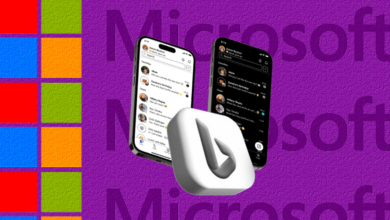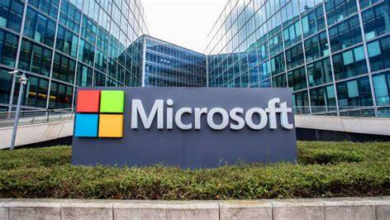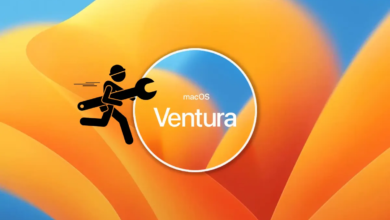How Gen Z Is Changing the Face of Tech in America
Gen Z in tech is reshaping America's digital landscape with innovation, ethical AI, remote work, and entrepreneurial startups.

Gen Z is radically transforming the American tech landscape, bringing a unique blend of digital fluency, entrepreneurial spirit, and social consciousness to the industry. As the first true digital natives, this generation born between the mid-1990s and early 2010s has never known a world without smartphones, social media, or instant connectivity. Their innate comfort with technology, combined with a strong desire for innovation and ethical responsibility, is reshaping everything from workplace culture to product development. Unlike previous generations, Gen Z prioritizes purpose over profit, demanding.
This shift is already evident in the way tech giants operate, from Google’s AI ethics initiatives to startups focusing on inclusive design. Gen Z’s influence extends beyond coding skills they are redefining success in the tech world by championing remote work, mental health awareness, and decentralized systems like blockchain and Web3. As they continue to enter the workforce in full force, their impact will only grow stronger, setting new standards for how technology is built, used, and governed in America. The future of tech is here, and it looks nothing like the past, that tech companies align with values like sustainability, diversity, and transparency.
How Gen Z Is Changing the Face of Tech in America
The Digital-Native Advantage
Gen Z, born between the mid-1990s and early 2010s, has never known a world without smartphones, social media, or instant access to information. This inherent tech-savviness allows them to adapt quickly to new software, programming languages, and digital tools. Unlike Millennials, who witnessed the rise of the internet, was born into it, making them natural problem-solvers in tech-driven environments.
Gen Z’s familiarity with emerging technologies
Moreover, Gen Z’s familiarity with emerging technologies like artificial intelligence (AI), blockchain, and virtual reality (VR) positions them as early adopters and innovators. Many are self-taught programmers, having learned coding through YouTube tutorials, online courses, and open-source communities. This DIY approach to tech education is reshaping traditional career paths, with many landing high-paying jobs without formal degrees.
Demand for Ethical
One of the most significant ways Gen Z is changing the face of tech in America is through their insistence on ethical and inclusive practices. This generation values diversity, equity, and sustainability, pushing tech companies to adopt fairer hiring policies, reduce carbon footprints, and develop AI that avoids bias. They are vocal about holding corporations accountable, using social media to call out unethical behavior and demand transparency.
Inclusive Tech
For example, Gen Z workers are more likely to reject job offers from companies with poor environmental records or discriminatory workplace cultures. They champion open-source projects, remote work flexibility, and mental health support factors that were often overlooked in previous tech booms. Their influence has led major firms like Google, Apple, and Microsoft to invest in green energy, ethical AI, and inclusive product design.
Entrepreneurship
Gen Z is also reshaping tech through entrepreneurship. Unlike previous generations that sought stability in corporate jobs, many Gen Zers prefer launching startups or freelancing. Platforms like TikTok, Shopify, and GitHub have empowered them to monetize skills early, whether through app development, E-commerce, or content creation. The gig economy, fueled by desire for autonomy, has given rise to a new wave of tech-driven side hustles.
Multitask across platforms
Gen Z’s ability to multitask across platforms sets them apart in the tech-driven workforce. Unlike older generations, they seamlessly switch between coding on a laptop, troubleshooting via smartphone, and collaborating on cloud-based tools all while engaging on social media or streaming content. This skill stems from growing up in a hyper-connected world, where managing multiple digital interfaces is second nature.
The Gig Economy
Additionally, Gen Z’s comfort with remote collaboration tools like Slack, Zoom, and Notion has made distributed teams more efficient. They prioritize results over rigid 9-to-5 schedules, pushing companies to adopt hybrid work models. This shift has accelerated digital transformation across industries, from finance to healthcare, as businesses adapt to flexible, tech-centric work style. Gen Z workers to handle complex projects efficiently without being confined to a single device or system.
The Future of Gen Z in Tech
As Gen Z continues to enter the workforce, their impact on the tech industry will only deepen. Their preference for automation, AI integration, and decentralized systems like Web3 and cryptocurrency suggests a future where traditional business models may become obsolete. Companies that fail to embrace values such as sustainability, mental health awareness, and digital privacy risk falling behind.
Gen Z’s desire for Autonomy
Gen Z’s desire for autonomy is reshaping traditional work structures, as they prioritize flexibility and independence over rigid corporate hierarchies. This generation values the freedom to choose when, where, and how they work, fueling the rise of remote jobs, freelance gigs, and entrepreneurial ventures. Unlike previous generations, they reject micromanagement, preferring trust-based work environments that emphasize results over fixed schedules.
Gen Z is not just adapting
Ultimately, Gen Z is not just adapting to tech they are redefining it. Their unique blend of digital expertise, social consciousness, and entrepreneurial spirit is setting new standards for innovation in America. The tech landscape will never be the same, and that’s a change worth embracing. Companies are taking notice, adjusting hiring practices to prioritize skills over credentials. Their tech-savvy nature enables seamless remote collaboration.
Read More: How Telecom Is Powering Smart Cities in the USA
Conclusion
Gen Z is undeniably transforming the tech industry in America, bringing a wave of innovation, ethical awareness, and digital-first thinking. Their influence extends beyond coding and startups they are redefining workplace culture, corporate responsibility, and the very nature of technology itself. As they continue to rise in leadership roles, the tech world must adapt to their values or risk becoming irrelevant. Embracing hybrid models and outcome-driven performance metrics to attract Gen Z talent.
The future of tech belongs to Gen Z, and their impact is only beginning. From AI ethics to remote work revolution, their vision for a more inclusive and sustainable industry is paving the way for a better digital tomorrow. Businesses that listen, learn, and evolve with this generation will thrive, while those that resist change will be left behind. The face of tech in America has changed and is leading the charge.
FAQs
How is Gen Z different from Millennials in tech?
Gen Z is more digitally native, entrepreneurial, and focused on ethical tech, whereas Millennials witnessed the rise of the internet and social media multi-platform demands of modern tech jobs.
What tech trends is Gen Z driving?
They are leading advancements in AI, blockchain, remote work tools, and sustainable tech solutions. Their ability to multitask across platforms coding on a laptop while troubleshooting via smartphone.
Why does Gen Z prioritize ethics in tech?
Having grown up with data privacy concerns and social justice movements, they demand transparency and fairness in technology gives them an edge in fast-paced tech roles.
How is Gen Z changing workplace culture?
They advocate for flexible schedules, mental health support, and diversity, pushing companies to modernize their policies. This push for autonomy is forcing companies to rethink workplace policies.
Will Gen Z’s influence continue to grow?
Absolutely as they assume leadership roles, their values will shape the future of tech for decades to come. Their fluid navigation between apps, devices, and workflows makes them uniquely equipped for the fast-paced.












One Comment